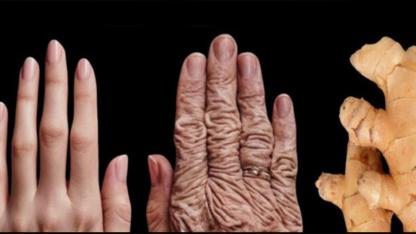Packed with magnesium, potassium, and vitamin B6, bananas support muscle relaxation, calm your nerves, and even assist in producing sleep-regulating hormones like melatonin. In this article, we’ll explore how bananas can improve sleep quality, when to eat them for the best effect, and what alternatives you can try if you’re not a fan of this tropical favorite.
Key nutrients in bananas that support sleep

Vitamin B6 is another sleep-friendly nutrient found in bananas. It helps convert the amino acid tryptophan into serotonin, a neurotransmitter that promotes relaxation and happiness. Serotonin is then transformed into melatonin, the hormone responsible for regulating your sleep-wake cycle. Together, these nutrients create a natural formula for deeper, more restorative rest.
Bananas and muscle relaxation
If leg cramps or restless legs often wake you up at night, a banana might be your bedtime ally. Potassium and magnesium—two of the most abundant minerals in bananas—help prevent muscle spasms and support smooth, consistent muscle contractions. Low levels of either nutrient can cause twitching or discomfort during the night.Magnesium also acts as a natural muscle relaxant by reducing tension and soothing your body after a long day. Whether you exercise frequently or spend long hours at a desk, eating a banana before bed can help ease tight muscles and promote a more relaxed state that supports better sleep.
Managing nighttime hunger
Late-night hunger can easily disrupt sleep and tempt you into unhealthy snacking. Bananas offer a simple, nutritious solution. Their blend of natural sugars, fiber, and complex carbohydrates helps stabilize blood sugar levels while keeping you full longer. The fiber in bananas slows down digestion, preventing blood sugar spikes and crashes that can interfere with your body’s ability to stay asleep. Unlike processed snacks, bananas provide steady energy without causing restlessness or indigestion. One medium banana before bed can satisfy cravings, prevent overeating, and help you drift off comfortably.
Supporting digestive health
A healthy digestive system is essential for uninterrupted sleep. Bananas are gentle on the stomach and contain prebiotic fibers that nourish beneficial gut bacteria. They also provide pectin, a soluble fiber that promotes smooth digestion and helps regulate bowel movements. By keeping your digestive system balanced, bananas reduce the chances of bloating or discomfort that can disturb your rest. Just be mindful of ripeness—moderately ripe bananas are easier to digest, while overly ripe ones might cause gas in some individuals.
Mood enhancement and calmness
Emotional well-being plays a big role in sleep quality. Stress and anxiety can keep your mind racing long after you’ve gone to bed. Fortunately, bananas can help calm your mood thanks to their vitamin B6 content, which supports serotonin production. Serotonin not only improves mood but also encourages a sense of calm and relaxation, helping you transition smoothly into sleep. Combined with the physical relaxation effects of magnesium and potassium, bananas provide a natural way to unwind both mentally and physically before bedtime.
The right time to eat a banana before bed
Timing is key when it comes to bedtime snacks. For the best results, eat a banana about 30 minutes to one hour before you go to sleep. This allows your body enough time to digest the fruit, absorb its nutrients, and start producing melatonin. Avoid eating bananas too close to bedtime if you’re prone to acid reflux, as lying down immediately after eating can cause discomfort. Likewise, eating too early might reduce the calming effects by the time you’re ready to sleep.
Potential drawbacks to consider
While bananas are generally safe and beneficial, they may not suit everyone. People with diabetes or insulin resistance should monitor their blood sugar response and opt for smaller or less ripe bananas if necessary. Those who experience heartburn may find that very ripe bananas worsen their symptoms.
Moderation is key—one banana is usually enough to provide the benefits without overloading on sugar or calories. As with any food, it’s best to pay attention to your body’s reactions and adjust accordingly.
Banana alternatives for better sleep
If you’re not a banana fan, several other foods offer similar sleep-boosting benefits. Tart cherries and cherry juice are rich in melatonin and can help regulate your sleep cycle. Almonds and walnuts provide magnesium and healthy fats that relax the body. Oatmeal is another great choice, as its complex carbs help your brain absorb tryptophan, promoting melatonin production. Warm milk and kiwi are also well-known for their natural sleep-supporting properties.
A simple step toward better sleep
Adding a banana to your nightly routine is a small but powerful step toward improving sleep quality. With its natural balance of nutrients, this fruit supports muscle relaxation, mood stability, and digestive comfort—all key components of restful sleep. Affordable, portable, and delicious, bananas make the perfect bedtime snack for anyone seeking a gentle, science-backed way to unwind. Next time you crave something before bed, peel a banana, relax, and let nature’s nutrients help you drift into peaceful slumber.












Yorumlar
Kalan Karakter: